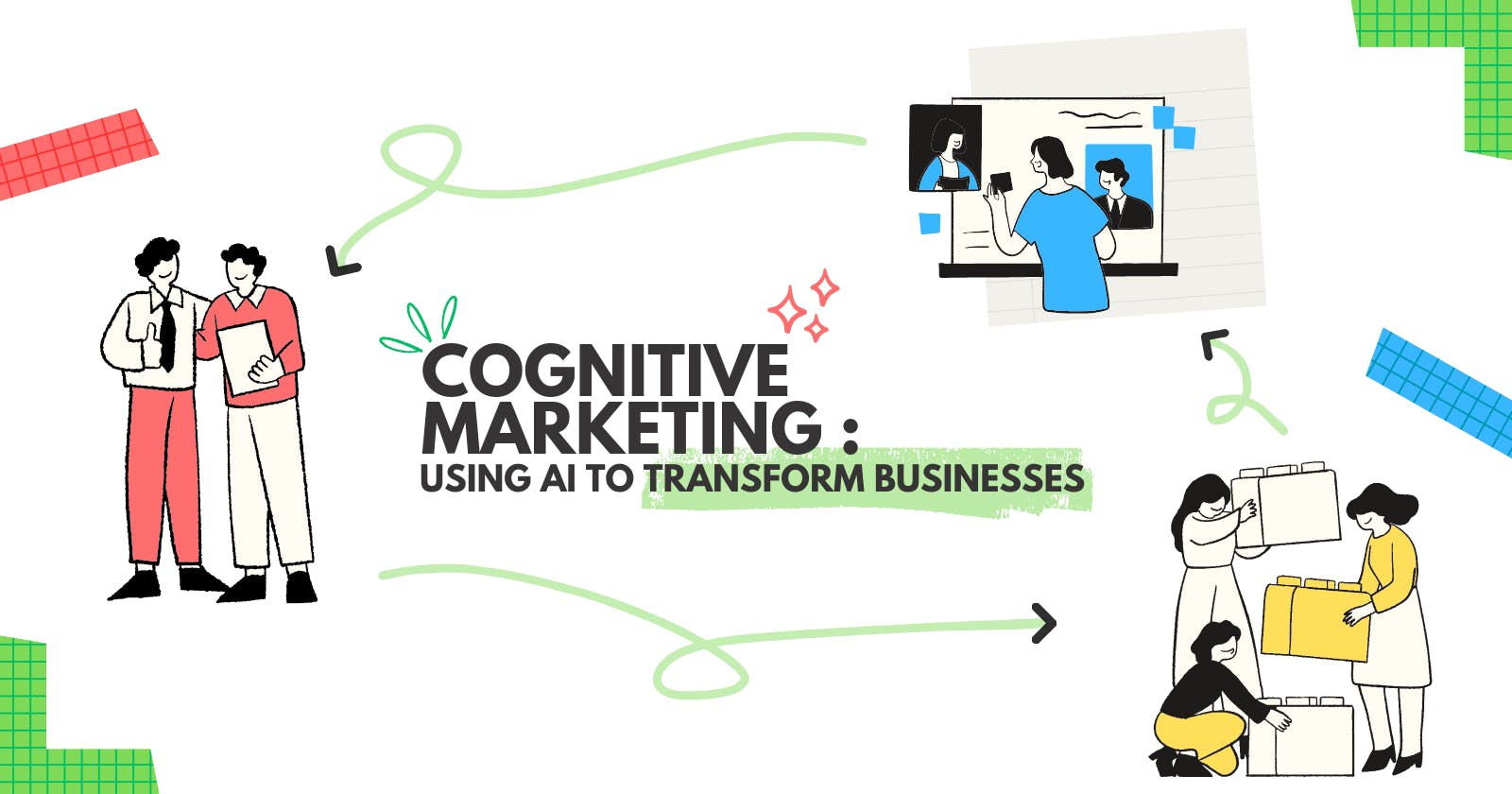Cognitive marketing refers to the use of cognitive technologies, such as artificial intelligence (AI), machine learning, natural language processing, and data analytics, to enhance and optimize marketing processes. The goal is to leverage advanced technologies to better understand customer behavior, preferences, and needs, and to deliver more personalized and targeted marketing campaigns.
The power that Artificial Intelligence brings to the field of Cognitive Marketing is huge. AI collects a multitude of behavioral data to make predictions about human behavior and how someone will interact with a given ad. This enables advertisers to segment audiences and create messages that will resonate and turn into conversions.
Advertisers and marketers no longer have to rely on older, inconsistent data and target a vague audience. They now have the power to examine vast quantities of data, identify a target audience and the key issues that could be addressed to that audience – and best of all – they have a variety of channels to use to distribute their campaigns so that it reaches the right person at the right time.
Natural Language processing (NLP) is a form of linguistics powered by AI that allows computers and technology to understand text and spoken words similar to how a human can. This technology helps these computers understand consumer intent and respond in a way that creates positive brand associations which refer to the favorable thoughts, feelings, perceptions, and attributes that consumers connect with a particular brand.
Ways brands use Cognitive Marketing
Brands use cognitive marketing to gain deeper insights into customer behavior, personalize interactions, and optimize marketing campaigns. Here are several ways brands use cognitive marketing:
Segment audiences in new ways : Cognitive marketing enables more sophisticated customer segmentation based on a variety of factors, including demographics, behavior, and preferences. This allows brands to tailor their
marketing messages to specific audience segments.
Personalize content : Brands use machine learning algorithms to analyse customer preferences, purchase history, and behaviour to provide personalized product recommendations. This enhances the customer experience and increases the likelihood of conversion.
Sentiment analysis : Brands use sentiment analysis to monitor and analyse customer sentiment on social media, reviews, and other online platforms. This information helps in understanding customer perceptions and adapting marketing strategies accordingly.
Chat bots and virtual assistants : Brands use AI-powered chat bots and virtual assistants to engage with customers in real-time. These bots can provide instant support, answer queries, and guide users through the buying process, enhancing customer service and satisfaction.
Let’s take a look at an example -
Myntra has introduced a new feature ‘MyFashion GPT’ - powered by ChatGPT, to enable natural language-based queries for seamless product discovery and get various options across related categories to complete looks.
Hers is how it works:
Personalized Recommendations: Myntra is using natural language processing to understand customer preferences and provide personalization. it enables shoppers to search for specific outfit needs by typing text in a manner that closely resembles natural speech.
Chatbots or Virtual Assistants: chatbots that use natural language processing to interact with customers, answer queries, and assist in the shopping process.
Content Generation: For instance, under women, when asked for “what can I wear for a wedding in Jaipur”, the feature will show multiple results that include sarees, blouses, lipsticks, and footwear, etc. from Myntra’s collection of over 2.1 million styles.
The use of cognitive technologies in advertising, as demonstrated by IBM's Watson Ads, showcases how AI and machine learning can transform traditional advertising into more interactive, personalized, and effective campaigns.
Reasons to include cognitive marketing in your strategy :
Advertisers are becoming increasingly interested in cognitive advertising due to its abundance of benefits. Here are just a few:
Increased ROI: Greater ad personalization means users are less likely to be annoyed by unwanted ads and may appreciate the messaging put in front of them. Engagement opportunities can increase and move more swiftly down the sales funnel, which can mean greater ROI for your company long term. In fact, 60% of consumers say they will become repeat buyers after a personalized shopping experience with a retailer.
Adaptability: Cognitive marketing adapts to changes in customer behaviour and market trends. The ability to continuously learn and evolve ensures that marketing strategies remain relevant and effective over time.
Personalization: Cognitive marketing systems can analyse individual customer data to create highly personalised experiences. By understanding each customer’s preferences, habits, and history, marketers can tailor their messages, offers and content to better resonate with everyone, ultimately increasing engagement and conversion rates.
Greater brand loyalty: brand loyalty can increase when a consumer can feel that connection, they feel safer and are more likely to come back.
This post was written by Sakshi Sehrawat
